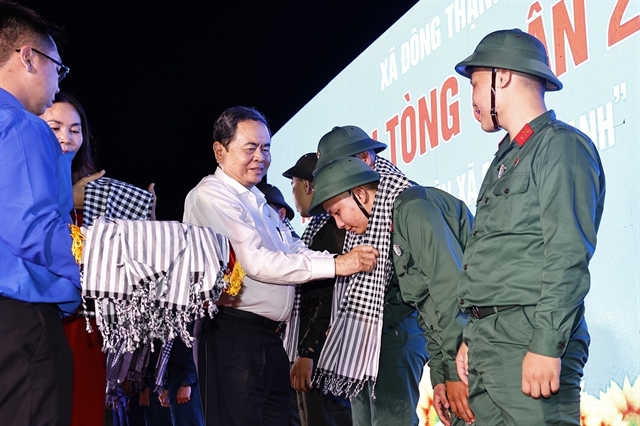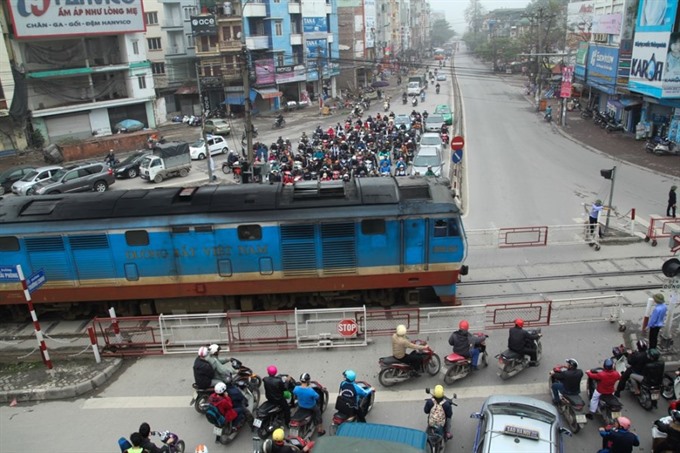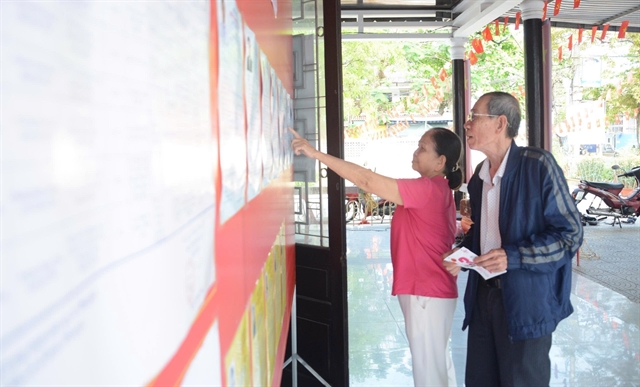 Society
Society

The Hà Nội Police Department has proposed to move the Hà Nội Railway Station and all the inter-provincial rail tracks to the suburbs to avoid traffic congestion and fatal accidents in the inner city.
 |
| An intersection point between the railways and the streets in Hà Nội. — VNA/VNS Photo Minh Sơn |
HÀ NỘI — The Hà Nội Police Department has proposed to move the Hà Nội Railway Station and all the inter-provincial rail tracks to the suburbs to avoid traffic congestion and fatal accidents in the inner city.
Speaking at the conference on reviewing traffic safety in the first seven months of this year on Tuesday morning, Major General Phạm Xuân Bình, deputy-director of the department, said that Hà Nội was among the five cities left in the world that was using inter-provincial rail tracks with many intersection points in densely populated areas.
Currently, there are about 10 kilometres of rail tracks in the inner city, which lead to traffic congestion and pose potential risks of accidents. Thus, it was necessary to move the Hà Nội Railway Station and its rail tracks out of the inner city, he said.
Bình said it would help eliminate traffic conflicts between railways and roads, ease traffic pressure in the inner city, and reduce accidents.
Figures from the city’s Traffic Safety Steering Committee show that in the first seven months of this year, as many as 14 traffic accidents occurred on railroads, leaving 13 dead and a few others injured.
Most of the accidents occurred at the intersection points or the crossing of the railways and streets as drivers and pedestrians failed to observe or obey railway signals.
Vũ Văn Viện, director of the city’s Department of Transport said that rail accidents tend to increase in provinces where illegal crossings are installed. Many crossings were installed temporarily by local residents without warning systems, he added.
Bình said from now until the end of this year, the Department of Transport would work with the Việt Nam Railway Corporation to build speed bumps at 92 intersection points to ensure the safety of people passing through the area.
The department would also urge the Ministry of Transport to ask the Việt Nam Railway Corporation to upgrade intersection points on crowded streets with barriers and automatic warning systems. — VNS




